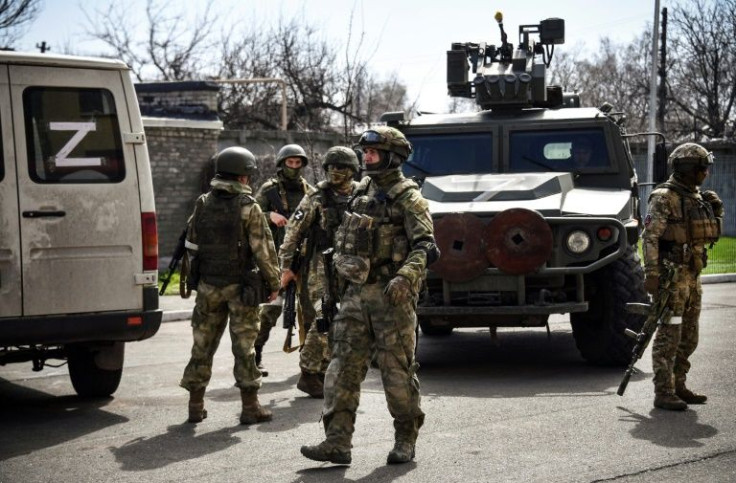Russia Removes Age Limit For Joining Military, Old People Can Now Fight In Ukraine
KEY POINTS
- Russia's parliament has passed a bill that would remove the upper age limit for first-time military recruits
- The bill must now be signed by Russian President Vladimir Putin to become a law
- Russia may be seeking to loosen requirements for contract soldiers in hopes of increasing manpower in Ukraine
Russia's lawmakers voted this week in favor of removing the upper age limit for contractual military service as the country's losses in its invasion of Ukraine reportedly neared 30,000 personnel.
Both the lower and upper houses of Russia's parliament, the State Duma and Federation Council, respectively, approved a bill that would remove the upper age limit for military recruits, Reuters reported.
The bill, which was introduced by Andrew Kartapolov, the head of the State Duma's Defense Committee, now needs to be signed by Russian President Vladimir Putin to become a law, a report by The Moscow Times said.
Under current Russian law, only citizens aged 18 to 40 can join Russia's Armed Forces by signing a contract, but the recently passed bill would remove the upper age limit for first-time recruits, according to the outlet.
However, the change would not apply to active soldiers, who must still be under 50 years old to renew their contracts.
"We understand that with some specialties experience comes with age: at 40-50 years old, [a person] has the richest depth of experience which should be used for defense purposes," Kartapolov was quoted as saying.
Around 400,000 contracted soldiers are currently serving in Russia’s Armed Forces. The number is padded each year with 130,000 conscripts who are drafted into the Russian army.
Russia has suffered around 29,600 combat losses among its personnel between the start of its invasion of Ukraine on Feb. 24 and Thursday, the Ukrainian Ministry of Defence said in its most recent casualty report.
Ukrainian authorities previously claimed that Russia was unable to hire enough contractors to replace its losses in Ukraine.
The Russian government may be seeking to loosen requirements for contract soldiers in hopes of increasing its manpower in Ukraine without resorting to potentially unpopular measures like mass mobilization, according to analysts.
"Given the model of the Russian Armed Forces, once you factor in the losses, they are operating at roundabout their limit," said Nick Reynolds, an expert in land warfare at the London-based Royal United Services Institute.
"If the Russians are to make any serious advances from now on, it will have to be with slow, methodical operations with a significant investment in resource and manpower," he added.






















